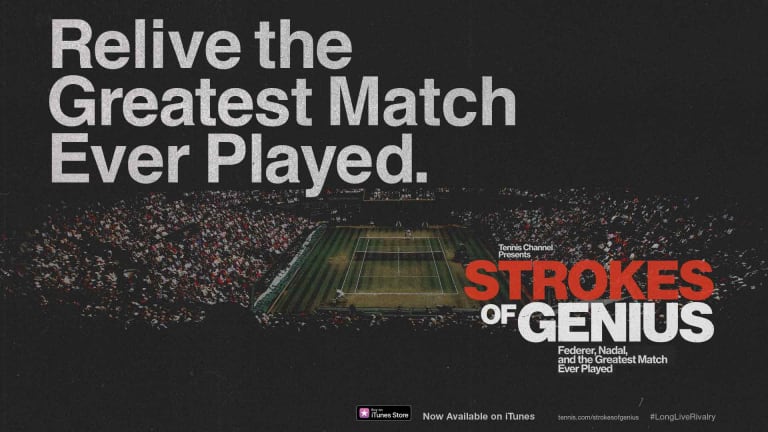In 1982, another Swedish teenager would go on to announce his presence on the main stage. Seventeen-year-old Mats Wilander followed up his junior Roland Garros title with a win at the senior tournament to become the youngest male Grand Slam champion at the time. A year later, he won the first of his three Australian Open titles and by 1988, he became the world’s top-ranked player after taking three of the four major championships.
The only Grand Slam Wilander missed out on was Wimbledon, which was won by his countryman Stefan Edberg. With a net-rushing game that was a complete contrast to Borg and Wilander’s relentless baseline style, Edberg won all four junior majors in 1983, then captured his first senior Grand Slam two years later in Australia. He added another victory there in 1987 before defeating Boris Becker in the 1988 Wimbledon final.
Like Wilander, Edberg would go on to reach the number-one spot in the rankings as well. And backed by Top 10 compatriots like Anders Jarryd and Joakim Nystrom, Sweden would dominate in Davis Cup as well, winning three titles from seven finals during the 1980s.
As Edberg and Wilander’s careers wound down, the next generation would also know its share of success, with Thomas Enqvist; Magnus Larsson, Magnus Gustafsson and Magnus Norman; Jonas Bjorkman; and Thomas Johansson all going on to reach the Top 10 and win Davis Cups. Johansson joined the nation’s greats as a Grand Slam champion when, surprisingly, he captured the 2002 Australian Open.
Seven years later, another Swede pulled off what was once thought impossible at one of the game’s most prestigious events.
At the 2009 French Open, big-hitting baseliner Robin Soderling shocked four-time defending champion Rafael Nadal in the round of 16, dealing the Spaniard the first loss of his career at the tournament. Falling to Roger Federer in that final, Soderling would turn the tables on the Swiss great a year later en route to the championship match once again. This time, Nadal stopped him in straight sets.
Plagued by mononucleosis, Soderling was eventually forced to retire in 2015. His final title in 2011 remains the last tournament won by a Swedish male. Ironically, it came in Bastad, where he defeated clay-court standout David Ferrer in straight sets.
Now, Soderling has a direct hand in guiding his nation back to prominence on the ATP tour as the coach of Elias Ymer. Before they started working together, Ymer qualified for all four Grand Slams in 2015 while still in his teens, and in that same year, he won his first Challenger title. In 2016, Ymer and his brother Mikael took the indoor title in Stockholm for their first title together on the main tour.
Neither brother has experienced another breakthrough moment this year, but as their nation’s two highest-ranked players in men’s singles, they’re looked at as the best bets to get Sweden back in the international discussion.
Tennis, by nature, is cyclical with many of the winningest nations experiencing a drought when it comes to meeting prior expectations. Sweden’s time in the spotlight again might still be further down the road, but based on its past successes, history might be on its side.
